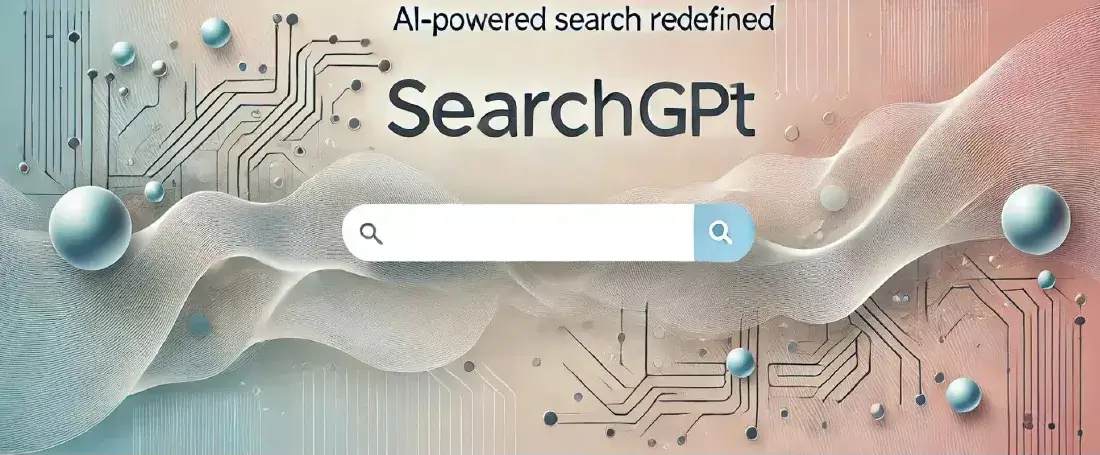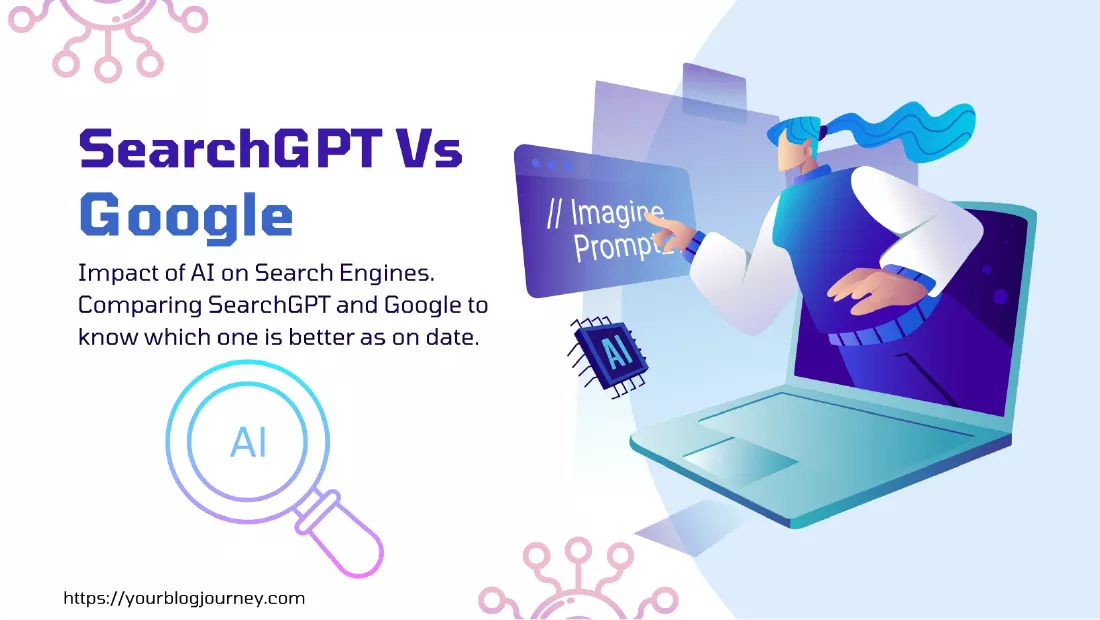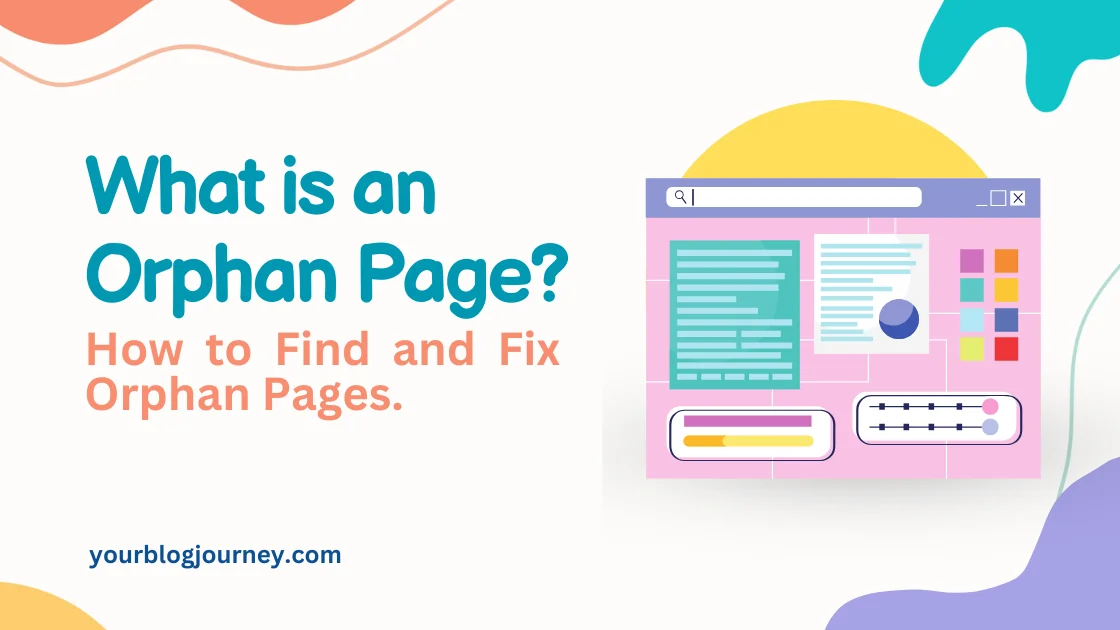The battle of SearchGPT Vs Google is heating up, and it’s more exciting than ever. With SearchGPT bringing AI-driven, conversational search to the table, it challenges Google’s long-standing dominance in the search world.
As these two powerful search engines compete, users are left wondering which one truly offers the better experience. Let’s explore this ultimate showdown to see how these search giants compare.
What is an AI Search Engine?
An AI search engine is a modern way to search online using artificial intelligence. Unlike a traditional search engine like Google, which relies on keywords and links, an AI-powered search engine like SearchGPT uses AI models to better understand the meaning and context of what users ask. This approach leads to:
- a new, smarter way to search
- giving users more relevant results without endless clicking
- a search experience that goes beyond keywords to deliver precise information
AI Search vs Traditional Search
| Technology | AI-powered, with a focus on meaning and context | Relies more on keywords and links |
| Response Style | Conversational, provides direct answers | Lists links based on keywords |
| User Experience | More personalized search experience | Information gathered from indexed pages |
Comparing SearchGPT vs Google

Google focuses on delivering organic search results based on popularity, but SearchGPT prioritizes giving you what you need right away. Let’s compare the features, user experience and SearchGPT Pros and Cons to understand SearchGPT and Google in a better manner.
Unique Features of SearchGPT
Since it was announced, SearchGPT has introduced exciting, unique features that set it apart:
- Conversational Responses – SearchGPT provides direct answers by analyzing your query in a conversation-like way, which is a significant departure from traditional search engines. This means you don’t have to scroll through pages.
- Personalized Search Experience – SearchGPT uses AI to learn from past searches, making it smarter with each question. This way, your search experience becomes more relevant and specific over time.
- Impact on Traffic – Unlike Google, where ranking on the first page is crucial, ranking in SearchGPT isn’t the same. Users interact with the search engine directly and receive no traffic from Google-like page results. This could change how websites approach SEO in the future.
SearchGPT – Recent Updates: As per the Open AI website, Open AI has teamed up with publishers to develop new search experiences and actively gathers their feedback for improvements. Along with introducing the SearchGPT prototype, they’re also rolling out tools that allow publishers to control how their content appears on SearchGPT, giving them more flexibility and options.
Google’s Established Features
On the other hand, Google also offers a wide range of established features:
- Vast Indexing – Google offers a vast index of web pages, ensuring it captures almost every part of the internet. This dominance in the search engine market has made it the go-to search tool for many.
- Tools and Services – Google also includes tools like Google Maps, Local Search, and other integrations that make it a search engine with multiple services in one place.
- Search Result Quality – Google results have set the standard for quality, with carefully ranked organic search results that help users find trustworthy information.
User Experience: SearchGPT and Google
The user experience on SearchGPT and Google differs in many ways:
- SearchGPT focuses on giving direct answers and engaging users in more dialogue with the search engine.
- Google search engine offers a mix of text, images, maps, and other media, keeping the search experience broad and versatile.
Compared to Google, SearchGPT feels more like a chat than a typical search. For some, this feels more personal; others may still prefer the traditional approach Google offers.
Pros and Cons of SearchGPT
| Pros of Using SearchGPT | Cons and Areas for Improvement |
|---|---|
| Instant Answers – SearchGPT excels in giving direct answers without extra links. | Limited Index – SearchGPT could improve its ability to cover the internet fully, like Google. |
| Easy Interaction – The dialogue with the search engine makes it feel interactive and friendly. | Reduced Traffic for Websites – Sites receive no traffic from Google in the usual sense, which could impact smaller websites relying on organic clicks. |
| Custom Search Results – SearchGPT offers results based on context, creating a personalized experience for each user. | Inconsistent Quality of Search Results – While SearchGPT performs well on specific topics, it sometimes lacks the consistency of Google’s search results. |
Comparing Quality of Search Results
When comparing the quality of search results, Google’s search results are often more refined, with vast data to back them up. SearchGPT’s search results are helpful for targeted queries but may struggle with broader topics.
The Future of Search: AI Innovations
AI and search are now inseparable. As AI becomes smarter, the future of search looks more tailored to individual users. For instance, AI-powered search tools like SearchGPT make it easier to get to the point, cutting down the time users spend searching.
- The evolution of search means fewer pages to browse through and more direct answers.
- Search engines may continue to adapt, providing options that balance AI responses with old search elements.
Challenges Google Faces from SearchGPT
Google has long held the top spot in search, but SearchGPT aims to compete with Google by creating a unique, user-centric model. Since SearchGPT provides detailed responses instantly, it changes how users interact with search engines, which could challenge Google’s search engine market share.
How SearchGPT Aims to Compete with Google
To challenge Google, SearchGPT focuses on new AI search features that emphasize fast, AI-powered search results. With its direct answers and conversational search style, SearchGPT wants to offer a fresh way to find answers, unlike traditional search engines that require more clicking.
What Users Can Expect Going Forward
Going forward, users can expect more AI tools, smarter search engines like SearchGPT, and new ways to search. This prototype of new AI search is just the start, and future search technology might blend AI search with other tech for a smoother experience.
Wrapping Up
As of date, in the battle of SearchGPT vs Google, both Google and SearchGPT bring value to the table in their own ways. For anyone looking for new AI-powered search tools, SearchGPT offers a refreshing, chat-like experience. Meanwhile, Google offers tried-and-true results that are trusted worldwide.
Whether SearchGPT will change the global search engine market remains to be seen, but one thing is certain: AI search is here to stay, and users will benefit from having more choices.
Do you want to get more from ChatGPT in article writing, then check this article – AI Writing Prompt To Rank In Google.
FAQ – SearchGPT Vs Google
Answer: Yes, SearchGPT is getting better with recent updates as now it provides direct answers and is great for specific questions, while Google excels in covering a wide range of topics with a reliable index.
Answer: SearchGPT works well for straightforward queries, especially if you want a quick answer.
Answer: It’s growing, but Google also has the majority share of around 90% of the search engine market.
Answer: SearchGPT uses AI models to understand your questions and give direct answers in a conversational way.









